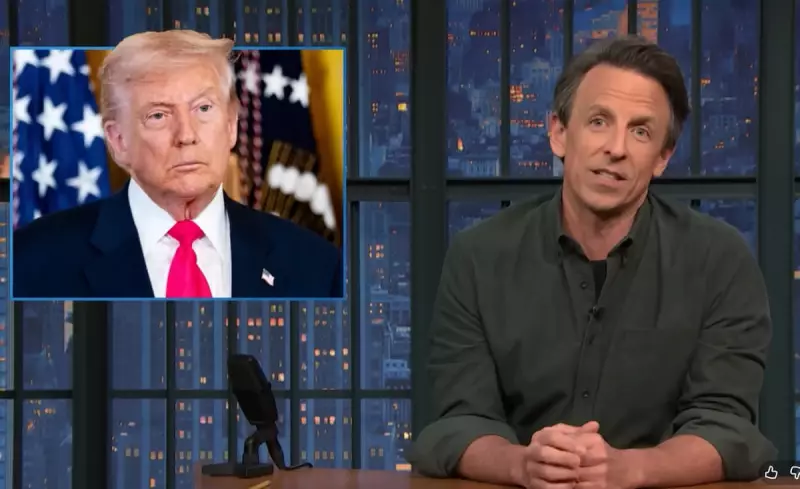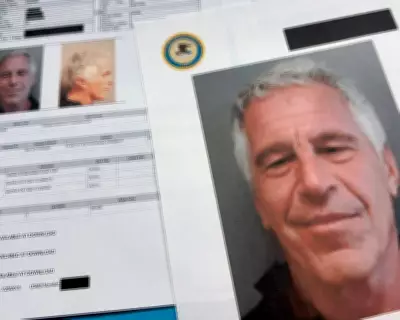
In a dramatic political reversal, Donald Trump has been compelled to sign a bill authorising the public release of all documents related to the late financier and convicted sex offender Jeffrey Epstein, following an overwhelming congressional vote that defied the former president's months-long opposition.
Late-Night Hosts Decode Trump's Dramatic U-Turn
Seth Meyers led the chorus of late-night commentary, dissecting what he termed Trump's "complete 180" on the controversial legislation. "He says he'll sign the bill that forces him to release the files he could've released on his own but wouldn't," Meyers quipped on his Wednesday evening broadcast of Late Night. "Thus requiring a bill to force him to do the thing he didn't want to do that he'll now be forced to do because of the bill he was against that he will now sign."
The host didn't mince words about Trump's motivations, stating: "It's obvious why Trump fought so hard to stop this bill from passing." Meyers detailed the extensive efforts by Trump's team to block the legislation, including emergency meetings in the White House situation room designed to pressure Republicans into voting against the measure.
Congressional Landslide Overrides Presidential Opposition
The legislative victory came on Tuesday when Congress voted 427-1 to approve the bill, sending it to Trump's desk with near-unanimous support. Jimmy Kimmel remarked on the extraordinary margin, joking that "it was such a landslide that Trump might actually be able to rebury the Epstein files under it."
The vote represented a significant rebellion within Trump's own party, with the former president having previously labelled supporting Republicans as "stupid" and characterising the files as a Democratic "hoax." The tension escalated to the point where Trump reportedly called far-right Congresswoman Marjorie Taylor Greene a "traitor" for her stance on the legislation.
Greene fired back in remarks outside Congress, defining a traitor as "an American who serves foreign countries and themselves" without directly naming the former president. Meyers offered a tongue-in-cheek response: "In fairness, she didn't say Trump's name. She could've been talking about anybody."
Uncertain Future for Document Release
Despite Trump's eventual signature, questions remain about how completely the justice department will comply with the new law. Kimmel expressed scepticism, noting: "Even if Trump does sign the bill, it's still unclear whether the justice department will actually release all the files, or have some files tied up in investigations – specifically, investigations Trump orders to keep them tied up in investigations."
Stephen Colbert celebrated the congressional action on The Late Show, describing the bill landing on Trump's desk as resembling "a flaming bag of poop. Very hard to put gold leaf on that." Colbert reminded viewers that Trump could have released the files at any time during his presidency but chose not to, and never provided an explanation for his refusal.
The new legislation requires Attorney General Pam Bondi to make all unclassified documents related to Epstein and his associate Ghislaine Maxwell publicly available within 30 days, setting a deadline around 19 December. Colbert quipped this would provide "just in time for my pervert advent calendar."
As the deadline approaches, all eyes will be on the justice department to see whether the public finally gains full access to documents that have been at the centre of one of the most controversial political battles in recent memory.





